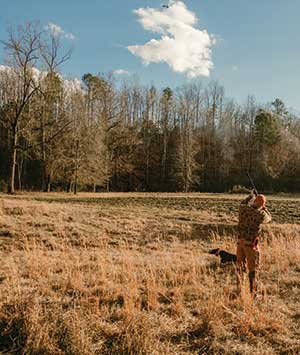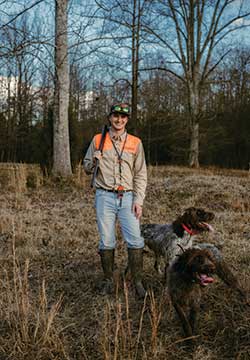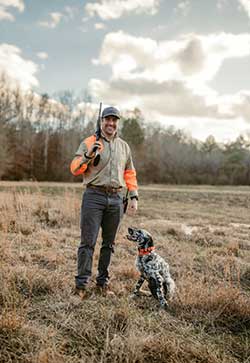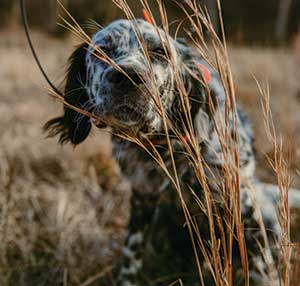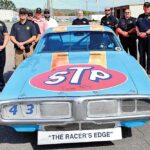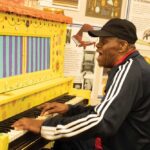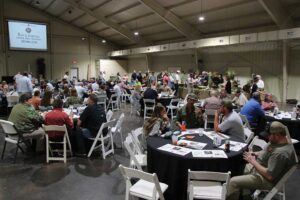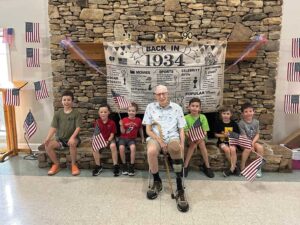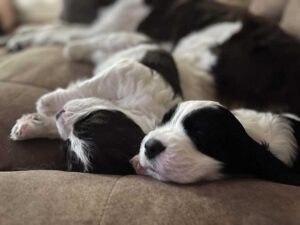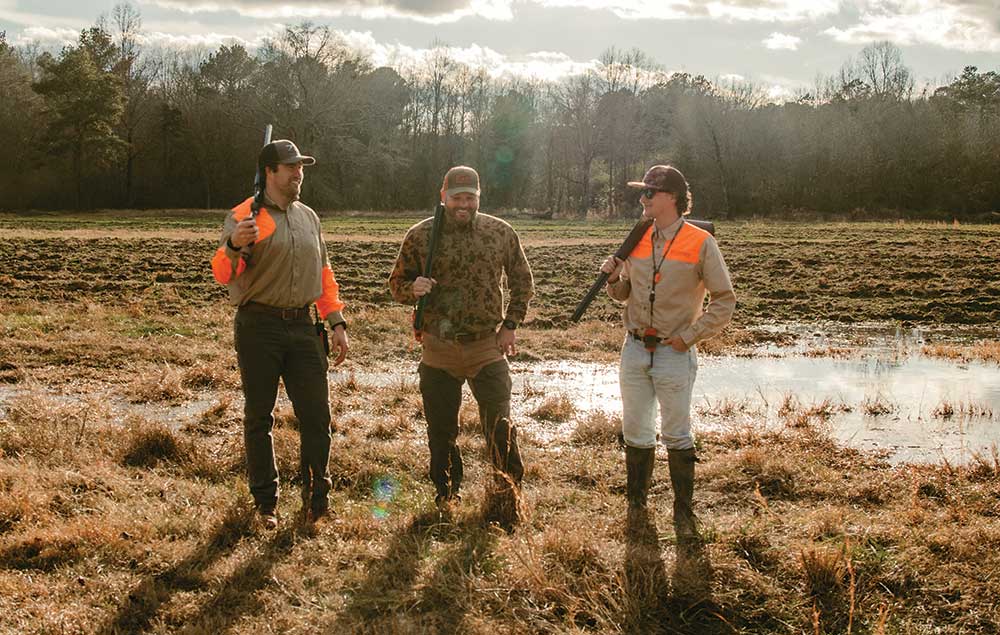
Sharing a passion for healing, hunting
Story by Carol Pappas
Photos by Mackenzie Free
In an open field of tall grass, mud puddles and woods all around, three dedicated physical therapists meet on a Sunday afternoon miles away from the clinics where they work all week long.
Intertwined with the disciplined calls of hunting dogs, they discover solace in a shared passion. Well beyond their clinic walls, where muscles are mended and limbs rehabilitated, they embark on a journey into the wilderness.
It is here in the shadow of towering pines with five dogs among them, they train for the thrill of the hunt, forging an unspoken bond – not just with nature, but with each other. The scene is a powerful testament to their dual passions.
The sun peeks through a scattering of clouds, illuminating a scene in which they all have played a central role dozens of times before. They’re training for their next big bird hunt.
Their journey together has taken them far away from the St. Clair County clinics of Therapy South, where they work. Their hunts have taken them to Kansas, Nebraska, North Dakota, South Dakota, Michigan and Oklahoma so far.
“We train out here,” said Tyler McGrady, motioning toward the field and woods that are part of the 70 acres he and his family own just north of Pell City. Wild birds are not as plentiful in the South as in other parts of the country, which necessitates the travel. But they don’t seem to mind. It simply brings them closer together.
Tyler readily shares his land with fellow PTs, Cade Mullins and Luke Brasher. Tyler is a partner in Therapy South, and he oversees the clinics in Pell City and Springville, where Mullins and Brasher work.
They joke that bird hunting isn’t a prerequisite for getting hired, it just happened that they all share the same after-hours sport.
On the job, you’ll find them bantering back and forth as they apply their healing touch to patients. The camaraderie is infectious. In an instant, patients join in the conversations about dogs, hunting and the great outdoors, perhaps helping them forget the pain and rise above their own physical limits, if only for a moment.
Tyler calls it “good-spirited ribbing.” A former baseball player at Jacksonville State University, he noted that all three of them are former college athletes and “too much time in the locker room” may be the catalyst for their approach in the clinic and on the hunt.
Luke, who played football at UAB, agreed. “We miss the time spent with teammates,” he said. Mullins played baseball at Delta State. “It gives us a deeper sense of teamwork,” added Tyler.
Once on the hunt, the teamwork becomes man and dog. The pride in each of their ‘best friends’ is evident. Tyler’s Maverick and Charlie are German Short Haired Pointers, whose grace and ability blend perfectly in pointing or hunting quail.
Cade’s Covey and Coosa are Wire Haired Pointing Griffons, whose loping gallop through a mud puddle or two, seems natural for a breed with an insular coat and webbed toes. Griffons love the water, and on this day, Covey’s penchant for puddles shows.
The pup of the bunch, an English Setter named Duke, belongs to Luke, who he is training himself. As he watches Duke circling through the tall grass – nose up to catch a whiff of a downed bird – Luke’s watchful eye has the noticeable glint of a proud Papa. After all, their dogs are family.
“My wife loves dogs,” Cade said. “They sleep in the bed with us.”
Tyler’s wife is “super understanding” about his past time, he said, and they’ve just added to their brood – a pup named Goose. His daughters, Brooke and Maggie, make it a family affair. They’ve developed a passion for assisting in training the dogs.
Luke’s wife didn’t really want a dog, he said. “Now she takes 20 pictures a day of him because she loves him that much.”
The three of them muse about the rewards reaped from their training and their hunts. “It’s your relationship with your dog. Your dog is your best friend,” said Tyler. “When you see what they were born and bred to do, when it all comes together in the field, it’s pretty cool to watch.” You’re able to turn off the outside world. “You’re in the prairie in the middle of nowhere with your dog.”
Cade loves “getting out and enjoying creation. Every time you go out, you pick something that stands out – a dog pointing – it points back to creation, this awesome place created for us.”
“It’s fun walking through the Lord’s creation,” said Luke. “It’s cool to see something that is innate in their nature – pointing and finding a bird.”
It allows you to become “disconnected from the world,” Tyler concluded.
They all have a healthy respect for Tyler’s dog, Maverick. Describing him as a stud with a championship bloodline, Luke noted, “If Maverick doesn’t point, there’s not a bird there. He’s pretty much a sure shot.”
How did they arrive at this place of solace and excitement entwined?
Tyler already had a dog when he got into bird hunting, encouraged by another physical therapist, Daniel Eck, who works in Therapy South’s Florence clinic. The two had played ball together in college. He’s been hunting ever since.
Cade grew up deer and turkey hunting on the family farm near Lake Martin. “I got tired of picking up birds and said, ‘Let’s get dogs and do this.’ ”
For Luke, the fascination began when he was 9. A neighbor had Brittany and Boykin Spaniels involved in field trials, and he would take him along. He strayed away from the sport for years, but Cade and Tyler “nagged that I needed a bird dog. It was the only way to be in the crew. So, I gave into peer pressure,” he joked, “but it was worth it.”
It’s all about the relationship with the dog and the excitement of anticipating what is to come, Tyler explained. In a world of otherwise instant information, “It’s the hope of what could be. You never know what the difference is going to be.”











